Road pelletized fibre S-CEL 7G® – Asphalt binder carrier
Basic properties
- fibrous granulate for road construction with a PE-based binder
- primarily used as a stabilising additive for use in SMA production
- product conforms to EN ISO 9001, EN ISO 14001 and OHSAS 45001
- manufactured since 1998
- also available in loose fiber form
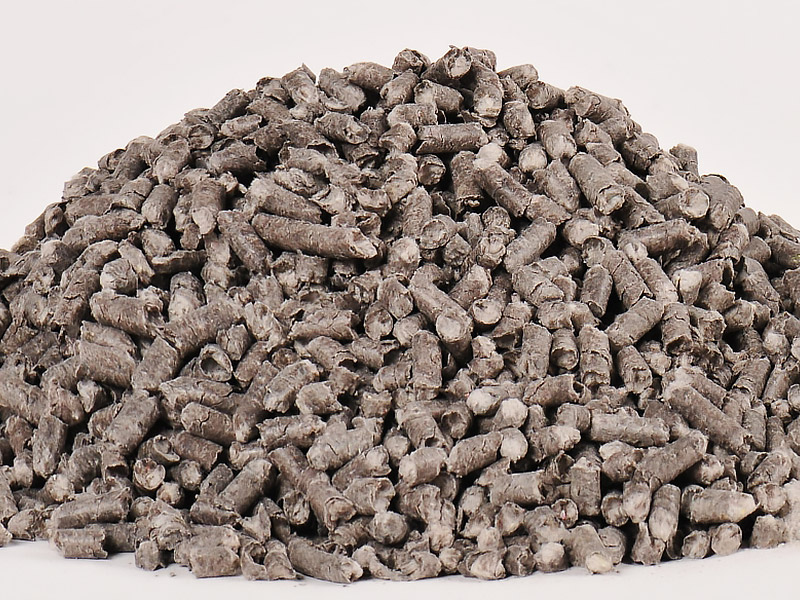
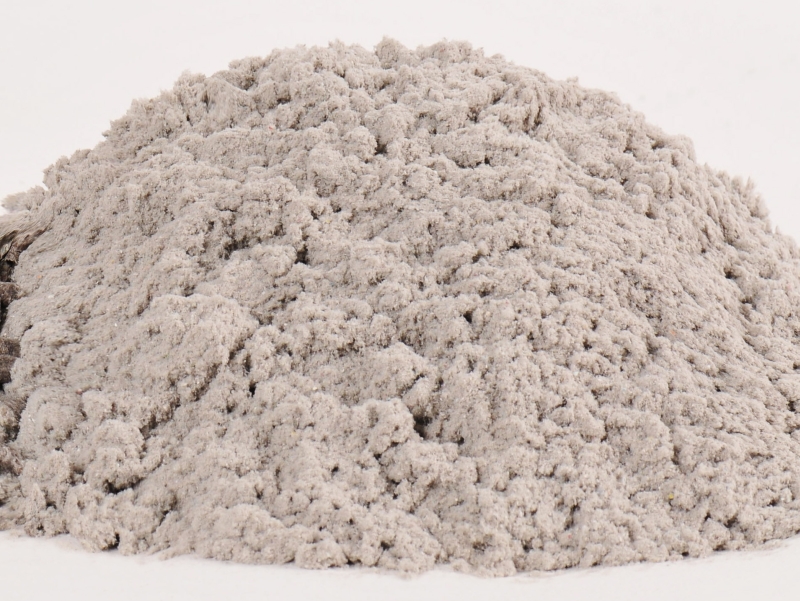
Benefits and use
SMA mixes incorporating S-CEL fibres have been tested in the harshest road conditions and most extreme weather conditions. They have regularly demonstrated long lasting performance, high levels of impact resistance, and lower levels of rutting and deformation.
Packaging
- packaging in PE bags of weight 1-15 kg or 500 kg (Big-Bag packaging), shipped on treat heated pallets
Technical Information
| Average length of the fibre | Approx. 1.1 mm |
| Thickness of the fibre | Approx. 35 – 45 μm |
| Bulk density | Approx. 460 – 480 kg/m3 |
| pH factor | 7.5 ± 1 |
| Average moisture | Less than 5.5 % of weight |
| Appearance | Grey-brown granules |
| Granule diameter | 6 mm |
| Average length of granules | 2 – 10 mm |
| Recommended dosage | 3 – 4 kg / 1 t of mixture |
Cellulose Fibres for SMA Production
SMA mixes incorporating S CEL fibres have been tested in the harshest road conditions and most extreme weather conditions. They have regularly demonstrated long lasting performance, high levels of impact resistance, and lower levels of rutting and deformation.
Product Range and Availability
Cellulose fibres produced by the CIUR Group for use in SMA production are called S CEL – 7 and are available as follows:
- S CEL – 7 (Loose Fibre): Wood based cellulose fibre wool; semi compressed bags and delivered to site in various size bags stacked on wooden pallets. Available in 3 kg and 4 kg low melt bags suitable for manual addition and 10 kg bales or 400 kg FIBC’s (Big Bags) suitable for addition via a proprietary fibre blowing machine (i.e. a Krendl machine or similar).
- S CEL – 7G (Fibre Pellets or Granules): Wood based cellulose fibre wool; compressed into pellet form and delivered to site in various size bags stacked on wooden pallets or in a bulk tanker. Available in 3 kg and 4 kg low melt bags suitable for manual addition, 500 kg FIBC’s (Big Bags) suitable for addition via a proprietary Big Bag system, or in a bulk tanker, suitable for blowing into a suitably designed storage silo and dosing through a proprietary pellet dosing system (i.e. a Flowmac system or similar).
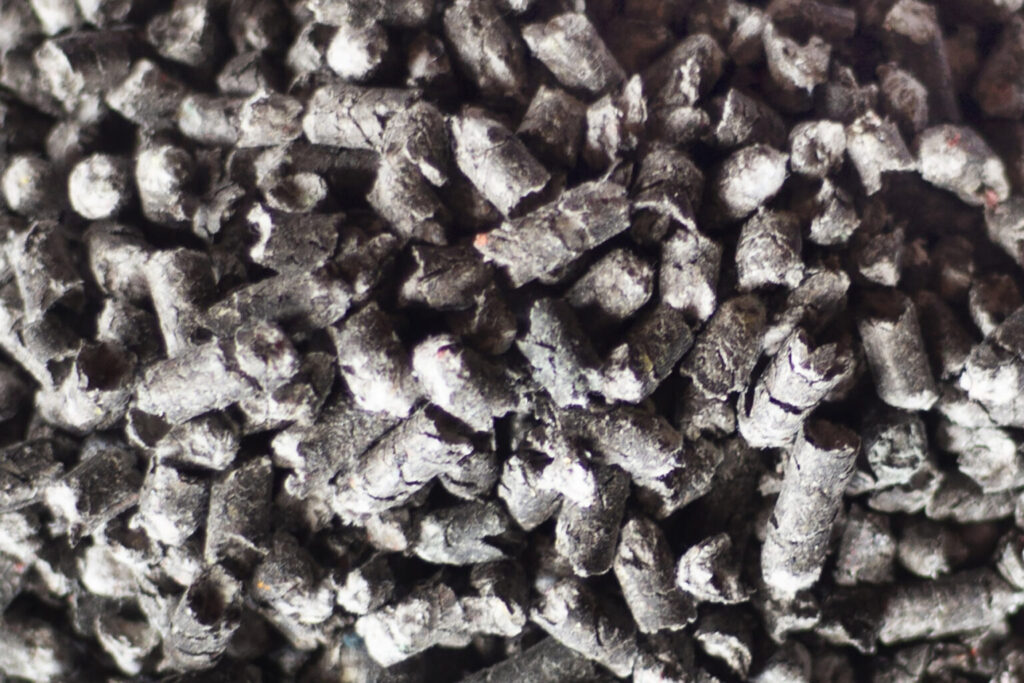
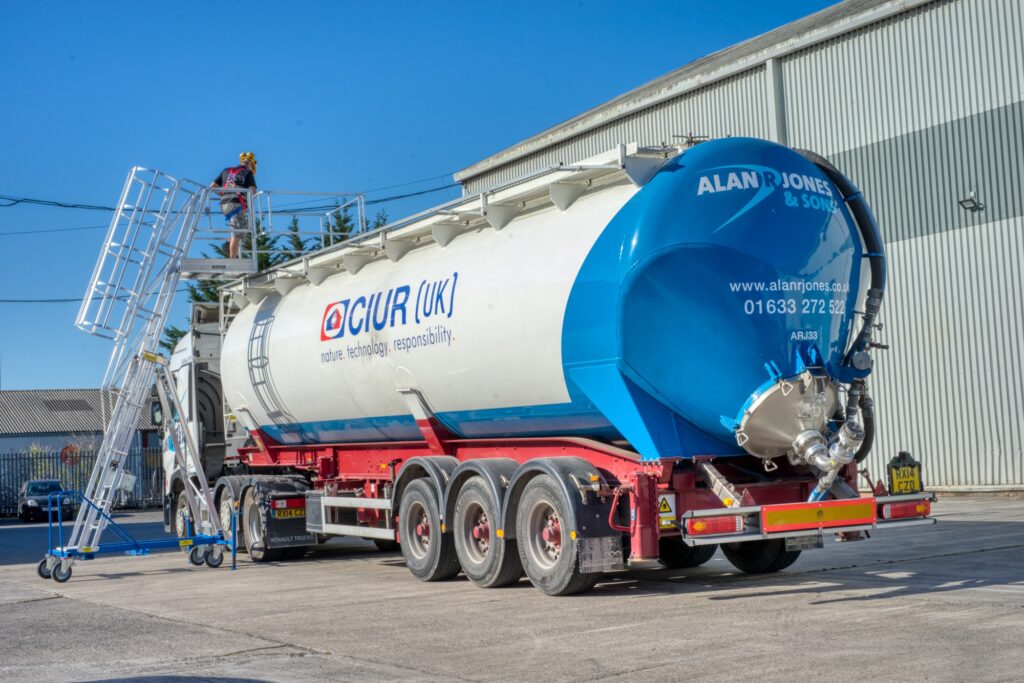
Fibre Dosage Rates
It is recommended that the S CEL -7 fibres are added at a rate of between 0.3 % and 0.4 % (3 kg and 4 kg per tonne of SMA). However, please be aware that different plant/mixer arrangements may require slightly different dosage rates and the optimum dosage rate should be established by carrying out trials on the plant concerned. CIUR (UK) Ltd. is very happy to be present and offer our support when these trials are being carried out.
Pellet Bulk Density
The nominal bulk density of the S CEL -7G range of pellets may vary between 400 kg and 520 kg per cubic metre depending upon the particular type of pellet being used. Due to slight potential variations in feed stock and the in the manufacturing process all bulk density figures quoted by CIUR (UK) Ltd. are subject to a tolerance of +/- 30 kg per tonne. The bulk density of other pellets available on the market may differ resulting in slight variations in your storage capacity and in the case of a ‘volumetric’ type dosing systems it is recommend that you re-calibrate the system when changing from one supplier to another.
Quality Assurance
All CIUR’s products are manufactured under stringent conditions to very high standards thereby ensuring consistent produce quality and performance. Current CIUR Company Certification includes ISO9001:2008 (Quality Management), ISO14001:2004 (Environmental Management) and OHSAS 18001:2007 (Occupational Health and Safety Management).
Dry Mix Times (Bitumen Delay)
The S CEL -7G pellets are designed to break up in the mixer using aggregate attrition. To ensure this takes place it is recommended that dry mix is recommended (prior to adding the bitumen) of between 5 and 15 seconds depending on the size of aggregate involved. In our experience the smaller the aggregate the longer the dry mix time is required. For example 14 mm SMA may only require a 5 seconds dry mix time, 10 mm only 10 seconds and 6 mm may require 15 seconds. However, as every plant configuration is slightly different we suggest that trials be carried out at the plant concerned to establish the optimum dry mix times for the different size aggregate (and dosage rates). CIUR (UK) Ltd. are happy to assist in these trials if required.
Information Sheets
Copies of our Product Data Sheets for the range of S CEL – 7 fibres are available electronically as well as copies of our Material Safety Data Sheets for Cellulose fibre generally and our Customer Contact Sheet. If you require copies of these or any additional information please do not hesitate to contact our Sales department and they will be happy to send it to you.
Prices
Our prices are competitive and flexible. Whether you have one site or many we are very happy to provide a quotation based upon your own specific requirements. Prices can be quoted on an ex-works basis or can include delivery to site. Either way you will only be charged for the amount of material actually delivered. This is determined by weighing the delivery vehicle on entry and exit to your site. The invoiced price will be calculated on the actual weight supplied and not the order quantity.
Delivery Lead Time
Our standard delivery lead time is normally 2 to 3 full working days from order placement. In certain circumstances we may be able to make quicker deliveries, however this will be by mutual agreement and we do reserve the right to make an additional charge for this.
Please note that our normal office hours are 8.30am until 5.00pm, Monday to Friday and that all orders should be placed before 2.00pm otherwise they may not be processed until the next working day. We also request that you confirm your order requirements in writing by e-mail paula.spiller@ciur.co.uk
Top Ups
To optimize our transport costs and therefore keep our prices as low as possible we may contact you from time to time and request that we ‘top up’ your silo whilst we are delivering elsewhere in the area.
Blowing Pellets into Silos (where applicable)
S CEL – 7G cellulose pellets should not be blown into the silo at a pressure greater than 0.5 bar (approx 7 psi) otherwise premature breakdown of the pellets may occur resulting in excessive fines (dust). As a guide, to blow 1 tonne of pellets into a silo at this pressure (0.5 bar) will take around 3 to 4 minutes – so 5 tonnes will take around 15 to 20 minutes, 10 tonnes will take around 30 to 40 minutes and 15 tonnes will take around 45 to 60 minutes. These times will vary from site to site depending upon the plant configuration etc. We suggest that the delivery vehicle entry and exit times to site are noted on the delivery documentation so that in case of any subsequent problems we can retrospectively check the rate of delivery.
Please notify CIUR (UK) Ltd. if the silo to be filled is completely empty as we have a different silo filling procedure when filling empty silos.
Health & Safety on Customers Sites
All CIUR (UK) personnel visiting any site, including delivery drivers, will conform to all Health and Safety Regulations as specified by the company and local site management. Our delivery drivers will point out any potential hazards/risks to site management BEFORE they commence delivery. These hazards/risks will also be noted on the delivery paperwork for future reference.
Storage
Cellulose fibre is produced from recycled paper and therefore should always be stored under cover and away from standing water and ignition sources.
Do not use cellulose fibre if it is wet or has been wet and has subsequently dried out.
Technical Assistance
Technical assistance on using any CIUR product is also available. We can provide lots of information on types of fibre available, various dosing systems, addition rates, recommended dry mix times etc. CIUR (UK) Ltd. are also happy to visit site to explain this information to site personnel as and when required (i.e. when a new site is established or when there is a change in site personnel).
Health Checks
It is recommended that a ‘Health Check’ be carried out before we start supplying any site and every 12 months thereafter (particularly with the larger users). ‘Health Checks’ are carried out on site to ensure that the dosing system is functioning correctly and being maintained to the manufacturers recommendations and include a report on the current situation. It is also recommended that samples of finished material be taken at the same time which can be subsequently analysed to establish certain criteria are satisfactory (i.e. binder drainage, fibre recovery rate, fibre condition etc). These samples may be used as a ‘benchmark’ against any samples taken in the future.

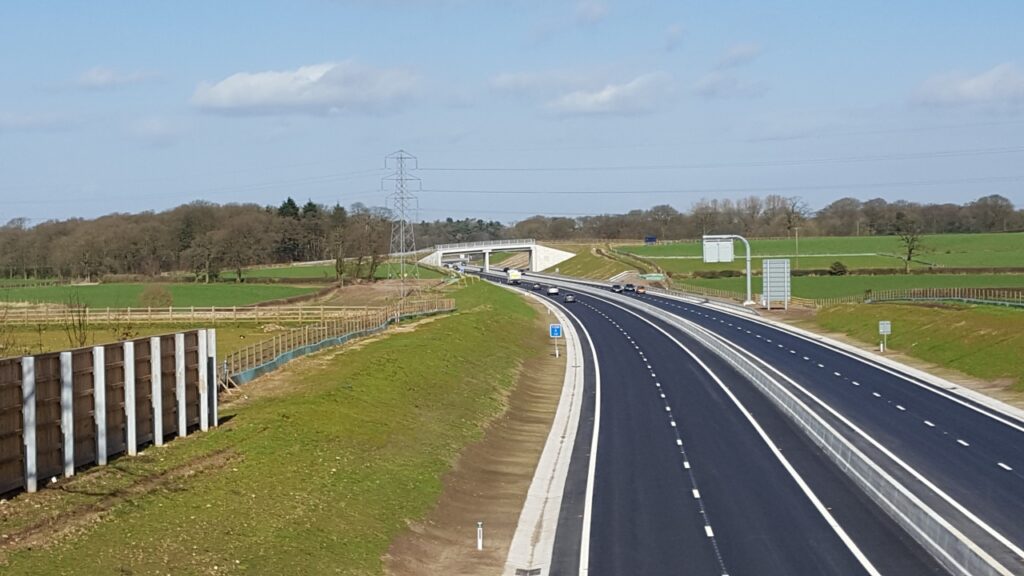
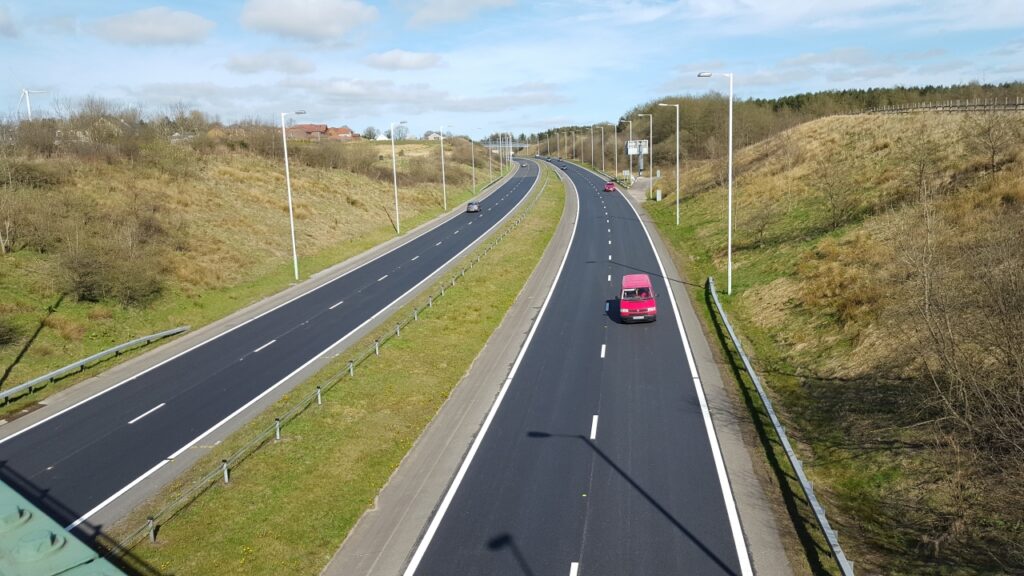
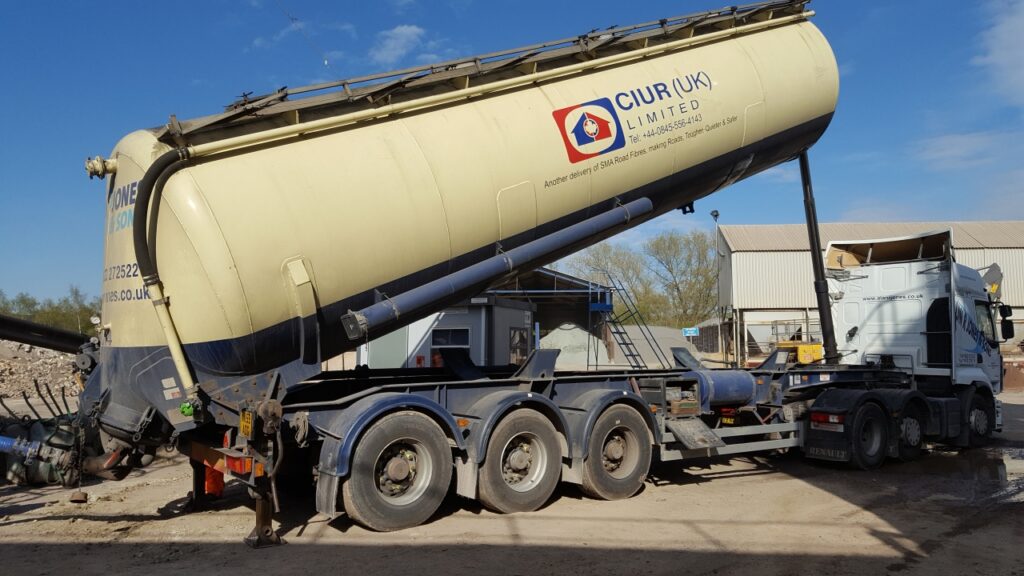
Projects
- Manchester International Airport – replace the ‘Juliet’ taxiway serving the primary runway
- Mersey Tunnels (resurfacing) – ‘Queensway’ and ‘Kingsway’ tunnels and approach roads
- M69 Northbound (resurfacing) Hinckley to Leicester Forest East
- M4 South Wales Westbound (resurfacing) Newport to Cardiff
- A55 North Wales Westbound (resurfacing)
- A487 Porthmadog By Pass (new road)
- M6 Junction 26, Wigan (resurfacing)
- Preston Link Road A583 – M55 (new road)
- M69 – Junction 1, Hinkley (resurfacing)
- M6 – Junction 44 Carlisle (resurfacing)
- A20 – London Road, From Allington to Dartford (resurfacing)
- A12 – London (resurfacing)
- M5 – Junction 2-3 (resurfacing)
- M42 – Junction 1 – 3A (resurfacing)
- M6 – Junction 3 – 9 (resurfacing)

